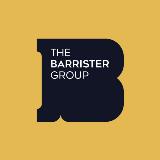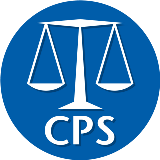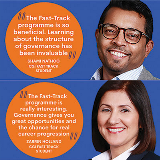*/

Marketing initiatives such as seminars remain popular among barristers and chambers but is the investment truly worthwhile? Heidi Smith explores how to maximise ROI
Barristers devote substantial time to hosting both online and in-person events. Preparing for marketing initiatives such as these can place significant demands on chambers. They remain popular because they provide an invaluable platform to showcase a barrister’s expertise, and the opportunity to shape the legal discourse. But is the investment truly worthwhile?
This article delves into various strategies for ensuring a favourable return on investment (ROI) for marketing events, and particularly for seminars.
Since there is a cost associated with marketing, it’s useful to know whether your efforts are working. Event marketers rely on an array of metrics to gauge the effectiveness of a marketing activity. Let’s have a look at some hard metrics for evaluating the success of an event, such as a seminar:
Examples of ‘soft’ metrics you might consider using to assess the impact of your seminar include brand awareness, ongoing client engagement and new networking opportunities.
Let’s examine a practical scenario to gauge the financial viability of hosting a marketing seminar, through the persona of a commercial barrister whose average billing rate per hour is £400. This helps calculate the opportunity cost of working on a seminar paper rather than on billable client work.
Suppose you invest 30 hours in drafting a seminar paper and a further 10 hours following up with clients afterwards. Factor in the contributions of a junior marketing manager for organisational support, along with expenses such as guest refreshments and other costs associated with the use of the room. You can see that the business development costs associated with the seminar could quickly escalate to £20,000.
Now, let’s establish specific objectives for this marketing seminar:
With these objectives in mind, we can analyse the potential for a good ROI.
Let’s say that you do win the two new clients, each of whom engages your services for 40 billable hours in a reasonable timeframe after the seminar, such as three to six months.
In this scenario, acquiring two new clients would yield a total of 80 billable hours, equivalent to £32,000 in fees (£400/hour x 80 hours). This would result (approximately) in a 60% ROI on the seminar, a promising outcome on the surface.
However, it’s crucial to scrutinise the cost-effectiveness of client acquisition in this context. With an average acquisition cost of £10,000 per client (that’s the £20,000 total cost of the seminar divided by the two clients), it’s worthwhile to evaluate whether there are more economical approaches to achieving the same objective. It may be that an ongoing social media marketing campaign could yield the same results, at a lower cost.
Assuming that you decide to proceed with your seminar, let’s look at ways to ensure its success. Achieving a favourable ROI for your marketing event hinges on meticulous planning and thorough preparation. Here are some ideas to help ensure your event has the best chance of achieving its objectives:
Once you’ve invested time and effort into crafting a seminar paper or presentation, it’s essential to maximise its impact by repurposing and reaching new audiences. Here are some ideas for extending the reach of your research efforts:
Barristers can achieve a significant return on investment for their marketing events through strategic planning, meticulous execution and innovative approaches. Defining your metrics at the outset will help you remain focused on executing a plan which will make it a success. Furthermore, by repurposing your research and extending outreach through various channels, you can ensure that the value of your efforts extends far beyond the event itself.

Barristers devote substantial time to hosting both online and in-person events. Preparing for marketing initiatives such as these can place significant demands on chambers. They remain popular because they provide an invaluable platform to showcase a barrister’s expertise, and the opportunity to shape the legal discourse. But is the investment truly worthwhile?
This article delves into various strategies for ensuring a favourable return on investment (ROI) for marketing events, and particularly for seminars.
Since there is a cost associated with marketing, it’s useful to know whether your efforts are working. Event marketers rely on an array of metrics to gauge the effectiveness of a marketing activity. Let’s have a look at some hard metrics for evaluating the success of an event, such as a seminar:
Examples of ‘soft’ metrics you might consider using to assess the impact of your seminar include brand awareness, ongoing client engagement and new networking opportunities.
Let’s examine a practical scenario to gauge the financial viability of hosting a marketing seminar, through the persona of a commercial barrister whose average billing rate per hour is £400. This helps calculate the opportunity cost of working on a seminar paper rather than on billable client work.
Suppose you invest 30 hours in drafting a seminar paper and a further 10 hours following up with clients afterwards. Factor in the contributions of a junior marketing manager for organisational support, along with expenses such as guest refreshments and other costs associated with the use of the room. You can see that the business development costs associated with the seminar could quickly escalate to £20,000.
Now, let’s establish specific objectives for this marketing seminar:
With these objectives in mind, we can analyse the potential for a good ROI.
Let’s say that you do win the two new clients, each of whom engages your services for 40 billable hours in a reasonable timeframe after the seminar, such as three to six months.
In this scenario, acquiring two new clients would yield a total of 80 billable hours, equivalent to £32,000 in fees (£400/hour x 80 hours). This would result (approximately) in a 60% ROI on the seminar, a promising outcome on the surface.
However, it’s crucial to scrutinise the cost-effectiveness of client acquisition in this context. With an average acquisition cost of £10,000 per client (that’s the £20,000 total cost of the seminar divided by the two clients), it’s worthwhile to evaluate whether there are more economical approaches to achieving the same objective. It may be that an ongoing social media marketing campaign could yield the same results, at a lower cost.
Assuming that you decide to proceed with your seminar, let’s look at ways to ensure its success. Achieving a favourable ROI for your marketing event hinges on meticulous planning and thorough preparation. Here are some ideas to help ensure your event has the best chance of achieving its objectives:
Once you’ve invested time and effort into crafting a seminar paper or presentation, it’s essential to maximise its impact by repurposing and reaching new audiences. Here are some ideas for extending the reach of your research efforts:
Barristers can achieve a significant return on investment for their marketing events through strategic planning, meticulous execution and innovative approaches. Defining your metrics at the outset will help you remain focused on executing a plan which will make it a success. Furthermore, by repurposing your research and extending outreach through various channels, you can ensure that the value of your efforts extends far beyond the event itself.
Marketing initiatives such as seminars remain popular among barristers and chambers but is the investment truly worthwhile? Heidi Smith explores how to maximise ROI

No-one should have to live in sub-standard accommodation, says Antony Hodari Solicitors. We are tackling the problem of bad housing with a two-pronged approach and act on behalf of tenants in both the civil and criminal courts

Pupillage offers hit new record exceeding pre-pandemic levels, Bar Council report finds

What’s it like being a Senior Crown Prosecutor? Stuart Page describes what drew him to the role, the skills required, and a typical day in the life

Harry Hodgkin, CEO of The Barrister Group, gives an insight into Chambers' core principles and the individual barrister's experience

Congratulations to the Crown Prosecution Service – a Top 10 Employer for Working Families 2023

With the explosion of interest in governance and the growing need to be multi-skilled to keep career options open, adding an extra string to your bow is not without its merits. The Chartered Governance Institute UK Ireland (CGIUKI) Fast Track for the Chartered Governance Qualifying Programme could be ideal for experienced professionals to reach chartered governance status